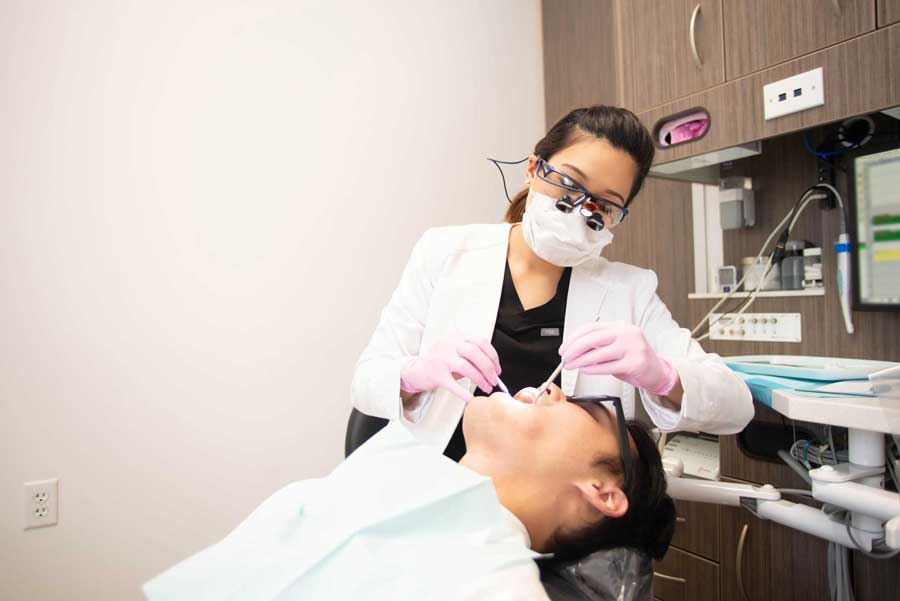How to Get Rid of Black Gums Permanently
How to Get Rid of Black Gums Once and for All
Intro
Are your gums turning black? If so, you are likely concerned about the appearance of your smile and may be wondering how to get rid of Black Gums once and for all. Fortunately, there are steps you can take to improve the appearance of your gums and protect your oral health. In this blog post, we’ll cover the causes of Black Gums and discuss how to effectively address them.

Causes of Black Gums
Black gums can be caused by a variety of factors, some of which are benign and others which require immediate attention. One of the most common causes is poor oral hygiene, which can lead to a buildup of bacteria and tartar on the teeth and gums. This can result in inflammation and discoloration of the gums. Other causes include smoking, certain medications, and medical conditions such as oral cancer, gum disease, or Addison’s disease. Hormonal changes during pregnancy can also cause temporary black gums. If left untreated, these underlying causes can lead to further complications such as gum recession, tooth loss, and even systemic health problems. It’s important to consult with a dental or medical professional to identify the underlying cause of black gums in order to receive appropriate treatment and prevent further damage to your oral and overall health.
Risk Factors for Black Gums
While black gums can affect anyone, certain risk factors may increase your chances of developing this condition. One significant risk factor is poor oral hygiene. Failing to brush and floss regularly can lead to the accumulation of plaque and bacteria, which can eventually cause gum discoloration.
Smoking is another significant risk factor for Dark Gums. The chemicals present in tobacco products can irritate and inflame the gum tissues, leading to a darkening of the gums. Additionally, smoking can also decrease blood flow to the gums, further exacerbating the issue.
Certain medications can also contribute to Dark Gums as a side effect. Some antimalarial drugs, for example, have been known to cause gum hyperpigmentation.
Genetics can also play a role in determining your risk of developing Dark Gums. If your family members have black gums, you may be more prone to experiencing this condition as well.
Other risk factors include certain systemic conditions, such as Addison’s disease or certain types of cancer, as well as hormonal changes during pregnancy or menopause.
Understanding the risk factors for black gums is essential in preventing and treating this condition. By addressing these risk factors, such as improving oral hygiene habits, quitting smoking, or discussing medication alternatives with your healthcare provider, you can reduce the likelihood of developing Dark Gums and maintain a healthy and vibrant smile.
Why You Should Seek Professional Help
If you have black gums, it is important to seek professional help from a dentist or a doctor. While it may be tempting to try home remedies or ignore the issue altogether, it is crucial to understand that Dark Gums can indicate an underlying problem that needs proper diagnosis and treatment.
One of the main reasons to seek professional help is to determine the cause of your black gums. Black gums can be a result of several factors, including smoking, certain medications, oral hygiene issues, gum disease, or even genetics. Without professional evaluation, it may be difficult to identify the exact cause and choose the most appropriate treatment.
Additionally, a healthcare professional can provide you with personalized treatment options for Dark Gums. Depending on the cause, they may recommend treatments such as scaling and root planing, gum grafting, or even professional teeth whitening to improve the appearance of your gums. Seeking professional help ensures that you receive the right treatment plan tailored to your specific needs.
Moreover, professional intervention can help prevent any further damage to your oral health. If left untreated, Dark Gums can progress to more severe conditions, such as periodontitis or gum recession. By addressing the issue early on, you can protect your gums, teeth, and overall oral health.
Remember, your oral health is an essential part of your overall well-being, and seeking professional help for Dark Gums is a proactive step towards a healthier and more confident smile.

Treatment Options for Black Gums
If you’ve noticed that your gums are turning black, the good news is that there are treatment options available. The first step in treating black gums is to determine the underlying cause. Once the cause is established, your dentist or doctor can recommend the appropriate treatment. Here are some common treatment options:
- Scaling and Root Planing: This is a deep cleaning procedure that can remove plaque and tartar buildup from the gum line, helping to improve gum health.
- Antibiotics: If black gums are caused by an infection, antibiotics may be prescribed to treat the infection and reduce inflammation.
- Gum Surgery: In more severe cases, gum surgery may be necessary to remove damaged tissue and restore gum health.
- Cosmetic Treatments: If Dark Gums are caused by a genetic condition or medications, cosmetic treatments like gum bleaching or grafting may be recommended to improve the appearance of the gums.
It’s important to note that treating Dark Gums can be a slow process, and it’s important to follow your dentist’s recommendations to achieve the best results. Additionally, good oral hygiene practices like brushing and flossing regularly can help to prevent Dark Gums from recurring in the future.
Preventive Measures to Avoid Black Gums
While there are various causes for black gums, certain preventive measures can be taken to avoid this dental issue. These include maintaining proper oral hygiene practices, such as brushing your teeth twice a day, flossing daily, and using mouthwash. Regular dental check-ups and cleanings are also crucial in preventing Dark Gums. If you smoke, consider quitting as tobacco can contribute to black gums and other oral health problems. Avoid using oral hygiene products that contain harmful chemicals or harsh abrasives that may cause damage to your gums. Additionally, consuming a healthy and balanced diet rich in vitamins and minerals, such as vitamin C and calcium, can promote gum health and prevent gum disease. By taking these preventive measures, you can reduce your risk of developing Dark Gums and maintain healthy oral hygiene practices.
If you want more utilization you can use the following links:
| Dark Gums |
| gums hyperpigmentation |
| Gums Depigmented |
| Gingival Depigmentation |



